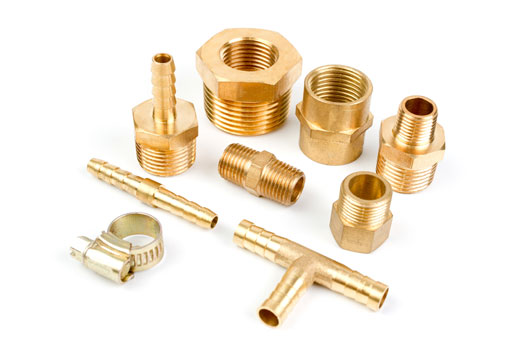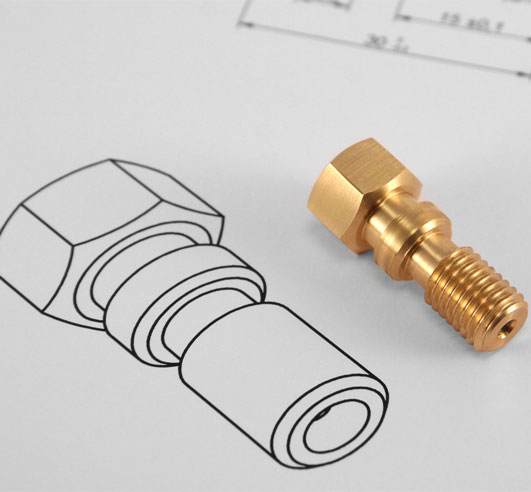As technology improves and evolves, so do the tools that we use to create intricate and precise objects. CNC machines have paved the way for this new era of precision manufacturing. In this blog post, we will explore the meaning of CNC machines, their internal workings, and their applications across various industries.
What is a CNC Machine?
CNC stands for Computer Numerical Control. CNC machines are specialized machines used for manufacturing tasks that require high levels of precision and accuracy. These machines can be found in a variety of industries and are used to produce parts for automobiles, aircraft, medical devices, and countless other products. The primary advantage of CNC machines is their ability to carry out complex machining operations with extreme precision and repeatability.
The Anatomy of CNC Machines
CNC machines utilize computer systems to control and automate the movement of cutting tools. As a result, they can follow intricate patterns and designs with unparalleled accuracy. The primary components of CNC machines include:
1. The controller: The brain of the CNC machine, the controller interprets and translates the programming code into motor movements.
2. Drives and motors: These components convert the controller's instructions into physical movements, driving the machine's various axes to perform the desired cutting operations.
3. The cutting tool: The cutting tool is the component that performs the cutting operations, like drilling or milling, on the workpiece.
4. The workpiece: The workpiece is the material to be machined, such as metal, plastic, or wood.
5. Machine frame and structure: The frame and structure of the machine provide rigidity and support to ensure that the cutting tool remains stable and precise during operation.
Common Types of CNC Machines
There are numerous types of CNC machines available, each designed to perform specific types of machining operations. Some of the most widely used CNC machines include:
1. CNC mills: CNC milling machines are designed to remove material from a workpiece using a rotating cutting tool. They are capable of performing a wide range of operations, such as drilling, tapping, cutting, and engraving. CNC mills can use different types of tools, including end mills, ball-end mills, and face mills.
2. CNC lathes: CNC lathes are used to create cylindrical parts, like gears and shafts, by rotating the workpiece and cutting material away with a stationary tool. Lathes excel in operations such as turning, thread cutting, and grooving.
3. CNC routers: CNC routers are primarily used for cutting and shaping wood, plastic, and other soft materials. They are similar to a CNC mill but are designed to move larger workpieces and are particularly useful for woodworking applications, such as cutting out furniture components and carving intricate designs.
4. CNC plasma cutters: CNC plasma cutters use a high-velocity jet of ionized gas to cut through metal and other conductive materials. They can quickly and precisely cut through sheet metal and are commonly used in sheet metal fabrication.
CNC Machine Applications Across Industries
Thanks to their flexibility and precision, CNC machines are used in a wide range of industries to produce everything from small, intricate parts to large, complex structures. Some of the industries that heavily rely on CNC machine technology include:
1. Aerospace: High-quality components manufactured with tight tolerances and precision are essential for the aerospace industry. CNC machines are used to create parts like turbine blades, aircraft frames, and engine components.
2. Automotive: From engine parts to suspension components and body panels, CNC machines make it possible to produce various automotive components with high accuracy and consistency.
3. Medical: CNC machines are vital in the production of intricate medical devices, surgical instruments, and implants. These life-saving tools require absolute precision to ensure the safety of patients and medical professionals.
4. Electronics: With the need for incredibly small and detailed components, CNC machines shine in the production of PCBs, connectors, heat sinks, and more.
5. Construction: CNC machines play a crucial role in manufacturing building components, like steel beams, wall panels, and even entire house frames.
Through advancements in CNC technology, manufacturers are now able to produce parts and products of higher quality and more complex design than ever before. The flexibility and precision afforded by these machines allow for an unprecedented level of customization and efficiency in manufacturing. As CNC machines continue to evolve, driven by innovations in computing and engineering, their capabilities are likely to expand even further, disrupting traditional manufacturing methods and bringing us ever-closer to the future of precision manufacturing.
cnc machine meaning







